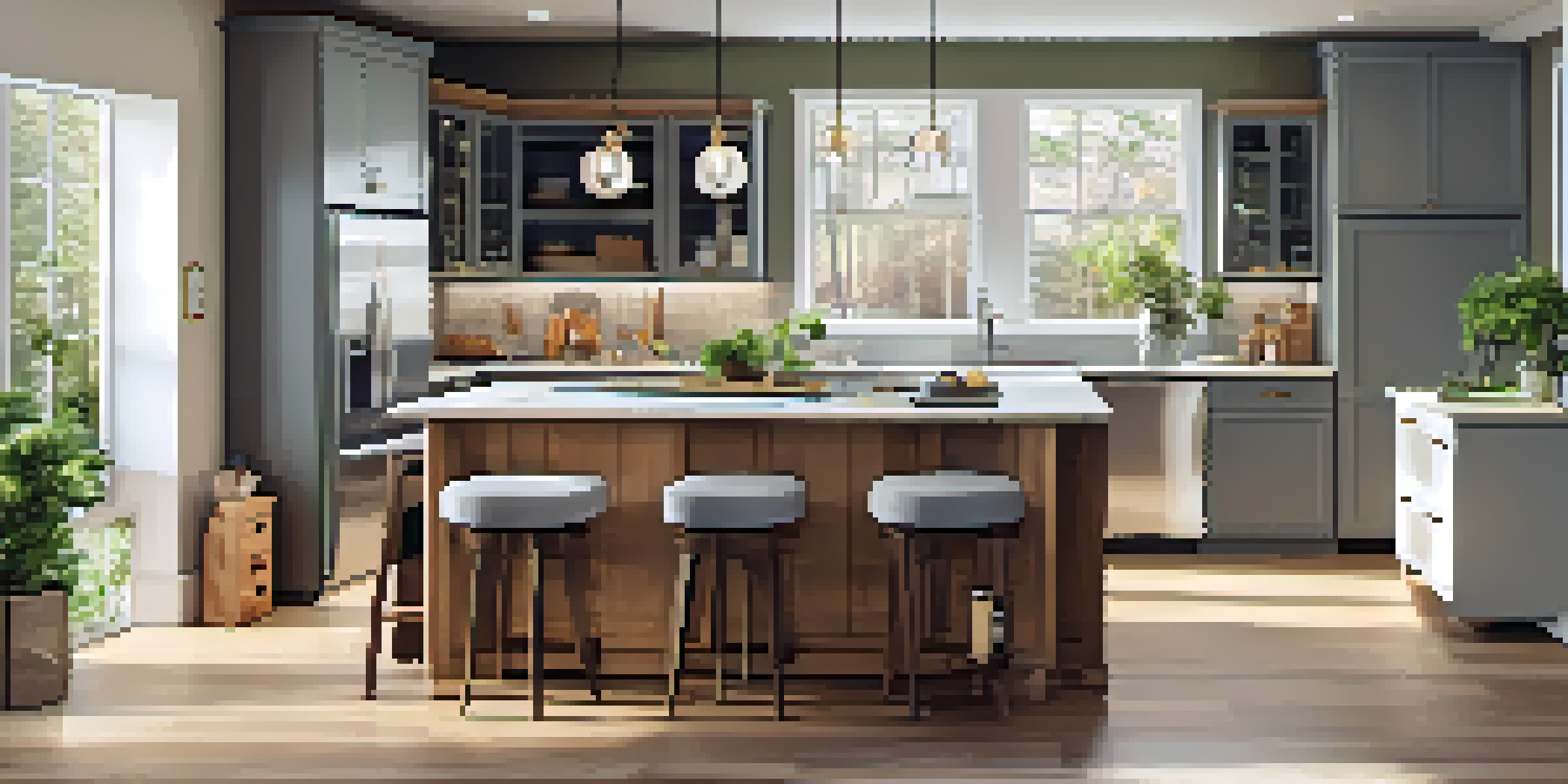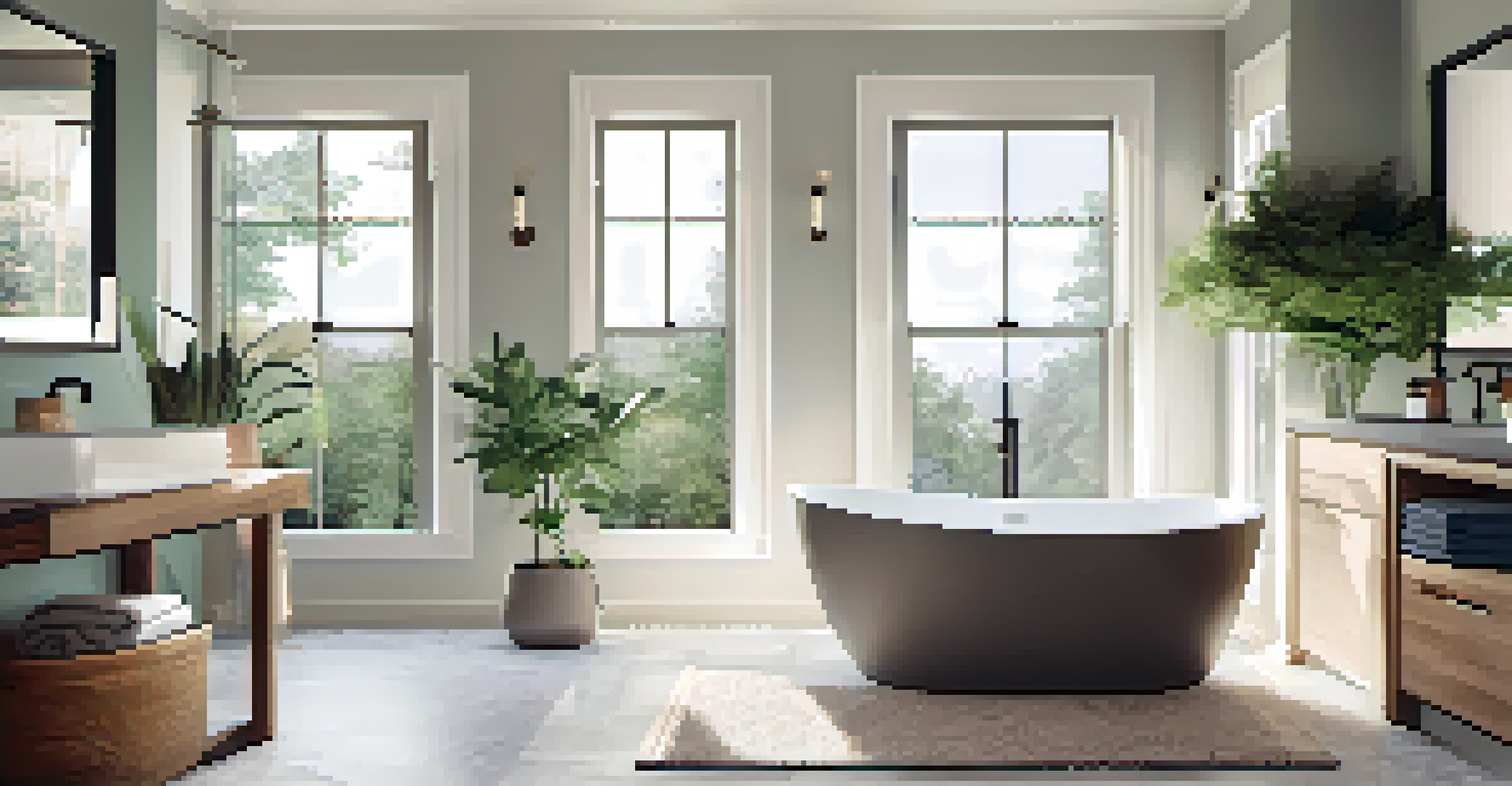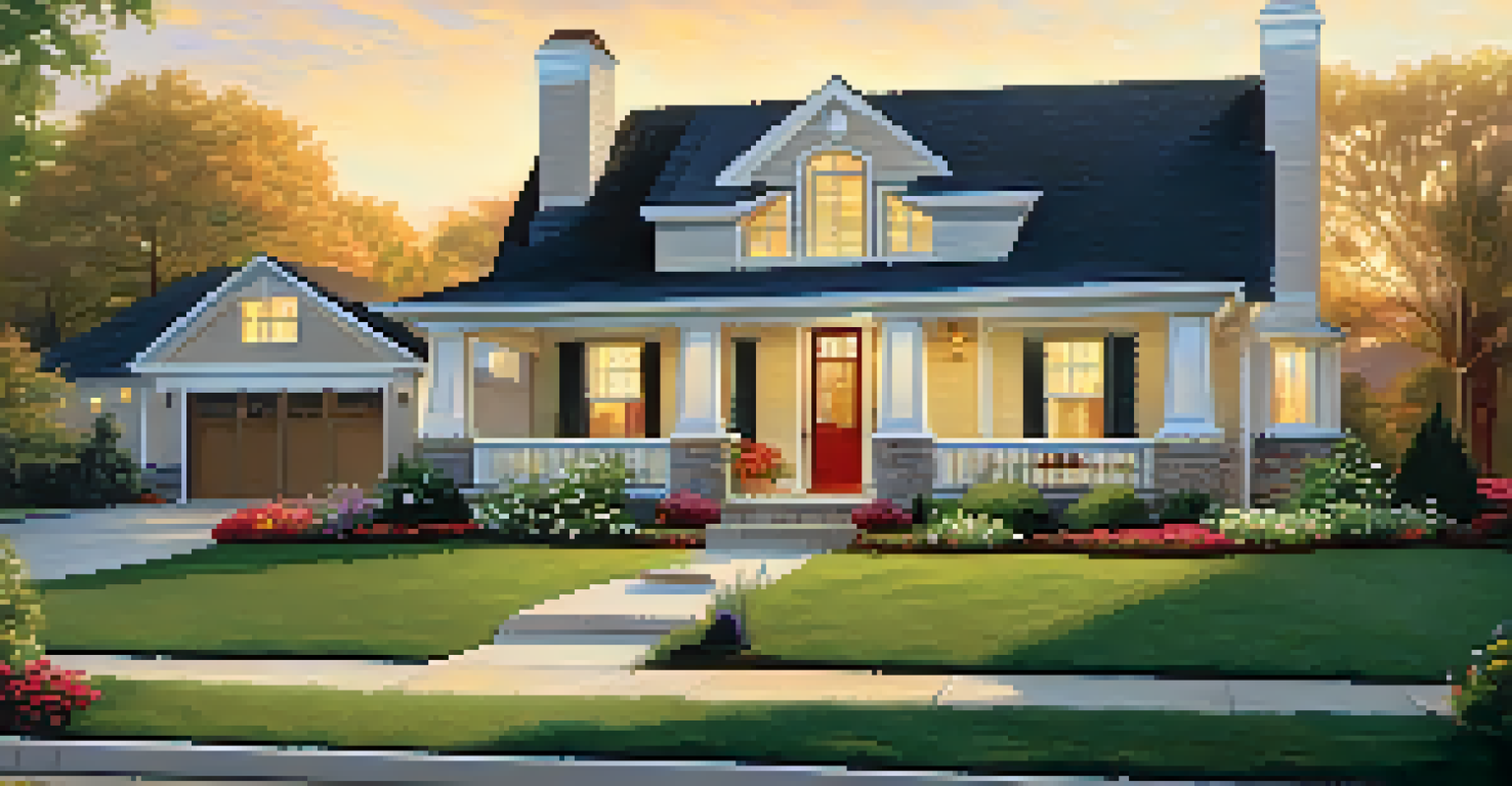Understanding the ROI of Different Home Upgrades

What is ROI and Why is it Important for Home Upgrades?
Return on Investment (ROI) is a measure used to evaluate the efficiency of an investment. In the context of home upgrades, it refers to how much value a renovation adds to your property compared to its cost. Understanding ROI helps homeowners make informed decisions about which projects will yield the best financial returns when selling their home.
Home is not a place, it's a feeling.
For example, if you spend $10,000 on a kitchen renovation and it increases your home’s value by $15,000, your ROI would be 150%. This insight is crucial, especially in a competitive real estate market where every dollar counts.
Ultimately, focusing on upgrades with high ROI can not only improve your living space but also enhance your financial standing when it’s time to sell.
Kitchen Remodel: A Classic Upgrade with High ROI
When it comes to home upgrades, kitchen remodels often top the list for ROI. A modern, functional kitchen can significantly influence a buyer's perception of your home. According to various studies, homeowners can expect to recoup about 70% to 80% of their kitchen renovation costs upon sale.

Imagine this: you invest in sleek cabinets, energy-efficient appliances, and beautiful countertops. Not only do these upgrades make your daily cooking experience more enjoyable, but they also create a stunning first impression for potential buyers.
ROI Guides Smart Home Upgrades
Understanding ROI helps homeowners prioritize renovations that will enhance property value when selling.
In essence, a well-executed kitchen remodel can transform your home’s appeal, making it a sound investment that pays off both in comfort and resale value.
Bathroom Upgrades: Small Changes, Big Impact
Bathroom upgrades are another area where homeowners can see a strong ROI. Simple updates, such as modern fixtures, fresh paint, or a new vanity, can breathe new life into an outdated space. On average, bathroom remodels can yield a return of around 60% to 70% of the initial investment.
The best investment on Earth is earth.
Consider the difference a new shower or tub can make. It’s not just about aesthetics; it’s also about creating a relaxing retreat that enhances your daily routine. Buyers often seek homes with updated bathrooms, making these upgrades particularly valuable.
Thus, even minor renovations can contribute to a significant increase in your home’s market value, demonstrating that thoughtful upgrades can yield impressive returns.
Curb Appeal: The Power of First Impressions
Curb appeal is the first thing buyers notice when they approach your home, making it a crucial aspect of home value. Enhancements such as landscaping, new siding, or a fresh coat of paint can dramatically improve your home's exterior appearance. Research shows that investing in curb appeal can return over 100% of your investment in some cases.
Think of it as the 'face' of your home. A well-maintained yard, attractive entryway, and appealing exterior can entice buyers right from the start. It’s like putting your best foot forward, setting the tone for what they can expect inside.
Kitchen and Bathroom Yield High Returns
Investing in kitchen and bathroom upgrades can recoup a significant portion of the costs, making them wise financial choices.
Therefore, investing in curb appeal is not just about aesthetics; it’s a strategic decision that can significantly boost your home’s value and marketability.
Energy Efficiency: A Wise Investment for Long-term Savings
Upgrades that enhance energy efficiency, such as new windows, insulation, or energy-efficient appliances, are increasingly popular among homeowners. Not only do these improvements reduce utility bills, but they can also increase your home’s value, with returns often exceeding 80%.
Imagine enjoying a comfortable home while also saving money on energy costs. This dual benefit appeals to environmentally-conscious buyers and can give your property an edge in the market. Plus, many states offer tax credits or rebates for energy-efficient upgrades, further improving your ROI.
In summary, investing in energy efficiency not only enhances your quality of life but also represents a smart financial move that resonates with today’s home buyers.
Adding Square Footage: Expanding Your Home’s Value
One of the most effective ways to increase your home’s value is by adding square footage through extensions or finishing a basement or attic. Depending on the nature of the addition, homeowners can expect an ROI of 50% to 75%. This means that while the upfront costs may be higher, the long-term benefits can be substantial.
Imagine converting an unused attic into a cozy bedroom or a basement into a recreation area. These enhancements not only provide extra living space but also make your home more attractive to potential buyers looking for room to grow.
Curb Appeal Boosts First Impressions
Enhancing your home's curb appeal can dramatically increase its marketability and value, often returning more than the investment.
Thus, adding square footage is not just about creating more space; it’s about enhancing your home’s overall functionality and marketability.
Smart Home Technology: The Future of Home Upgrades
Smart home technology is rapidly becoming a sought-after feature in modern homes. Upgrades such as smart thermostats, security systems, and lighting can enhance convenience and energy efficiency. On average, homeowners can expect to see a return of around 70% on their investment in smart technology.
Picture controlling your home’s lighting, temperature, and security with just a few taps on your smartphone. This level of convenience appeals to tech-savvy buyers, making your home stand out in a crowded market. Additionally, many smart devices help reduce energy consumption, further enhancing their value.

In essence, investing in smart home technology is not only about keeping up with trends; it’s about adding value and appeal to your property for future buyers.
Final Thoughts: Choosing the Right Upgrades for Your Home
When considering home upgrades, it’s essential to evaluate both personal enjoyment and potential ROI. While some projects may offer high returns, others might be more about creating a space you love. Balancing these factors can lead to a more satisfying decision-making process.
Take the time to research which upgrades are most popular in your area and align with buyer preferences. This can help you prioritize projects that not only enhance your living experience but also contribute to your home’s value.
Ultimately, by making informed choices about home upgrades, you can enjoy your space while also maximizing your investment for the future.